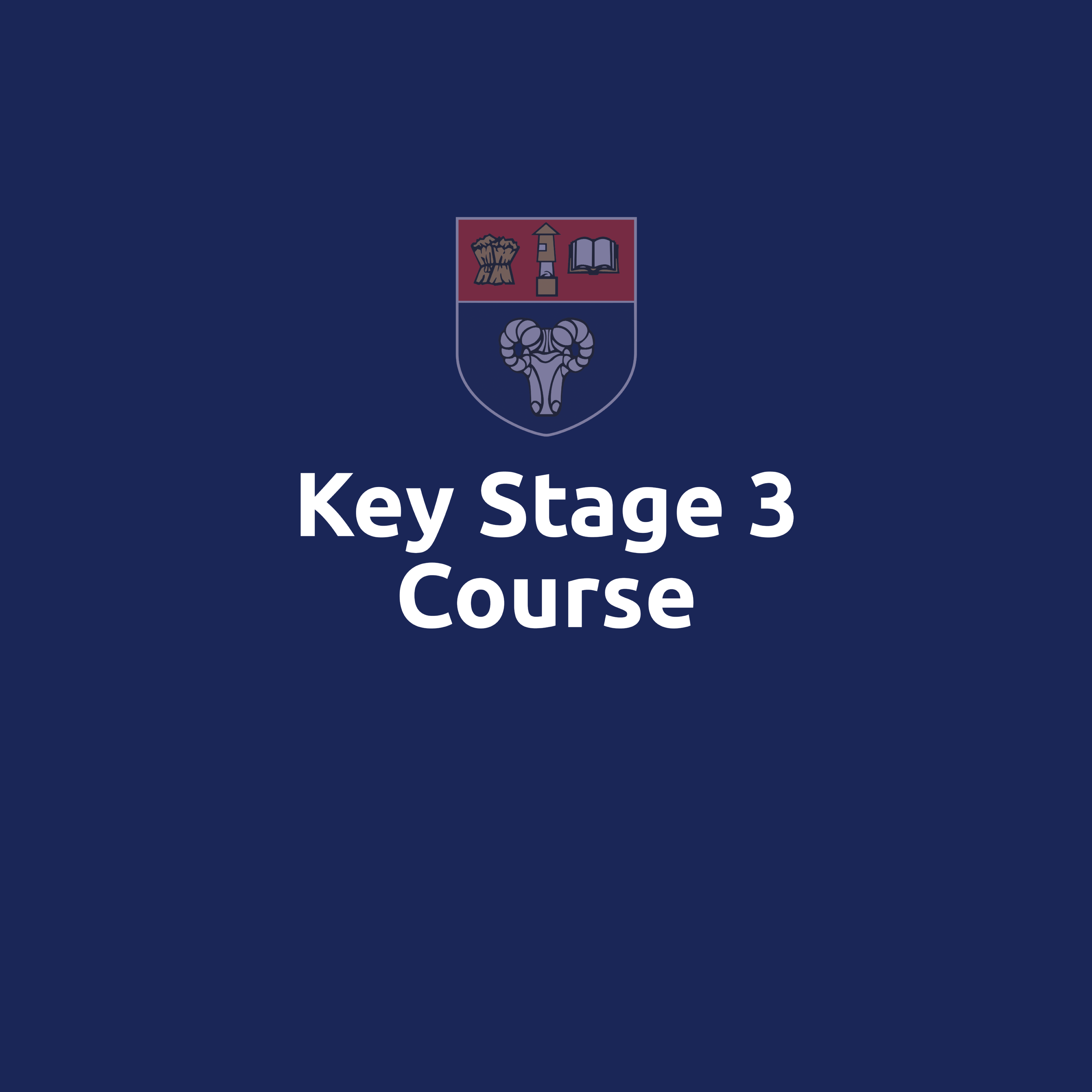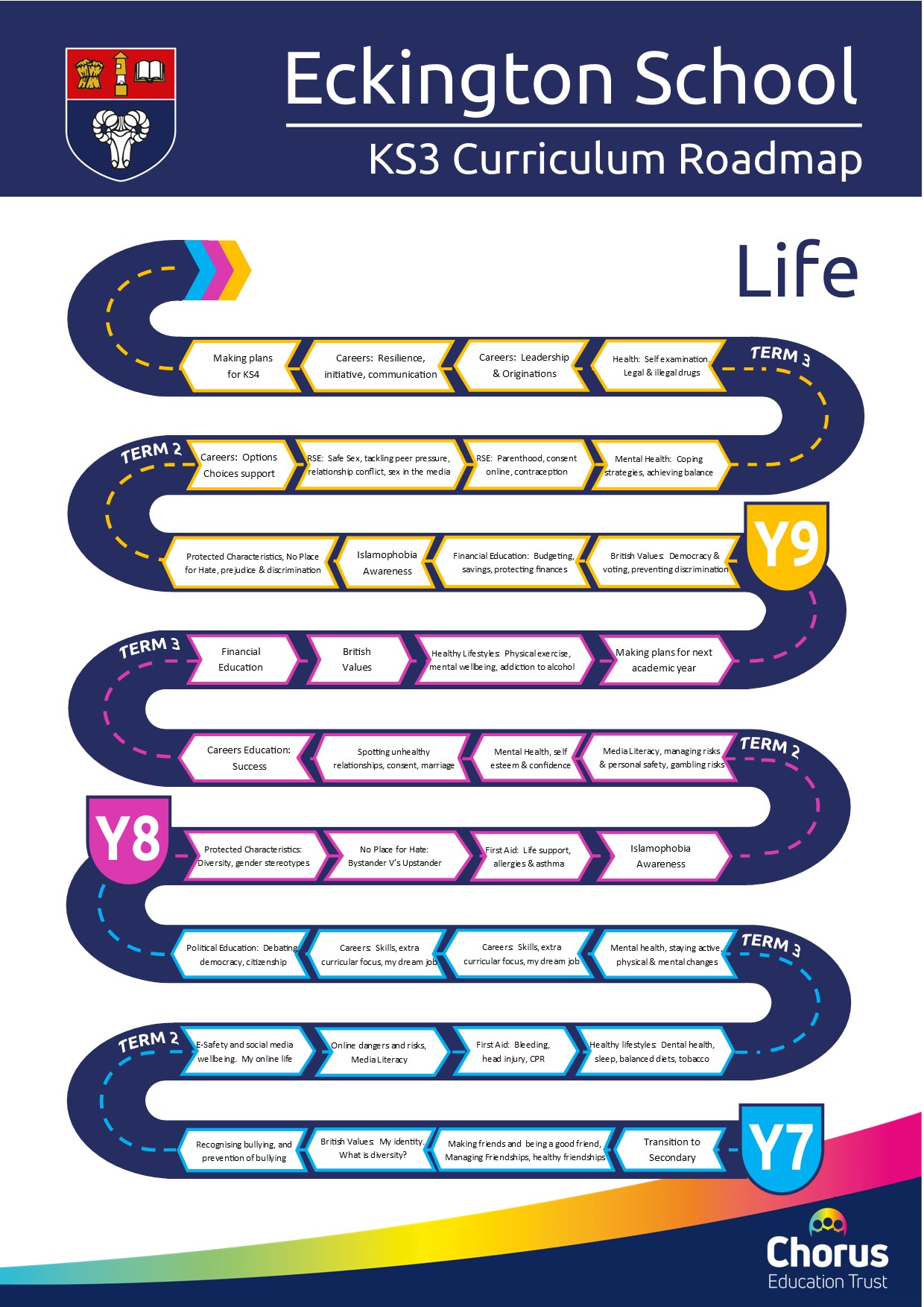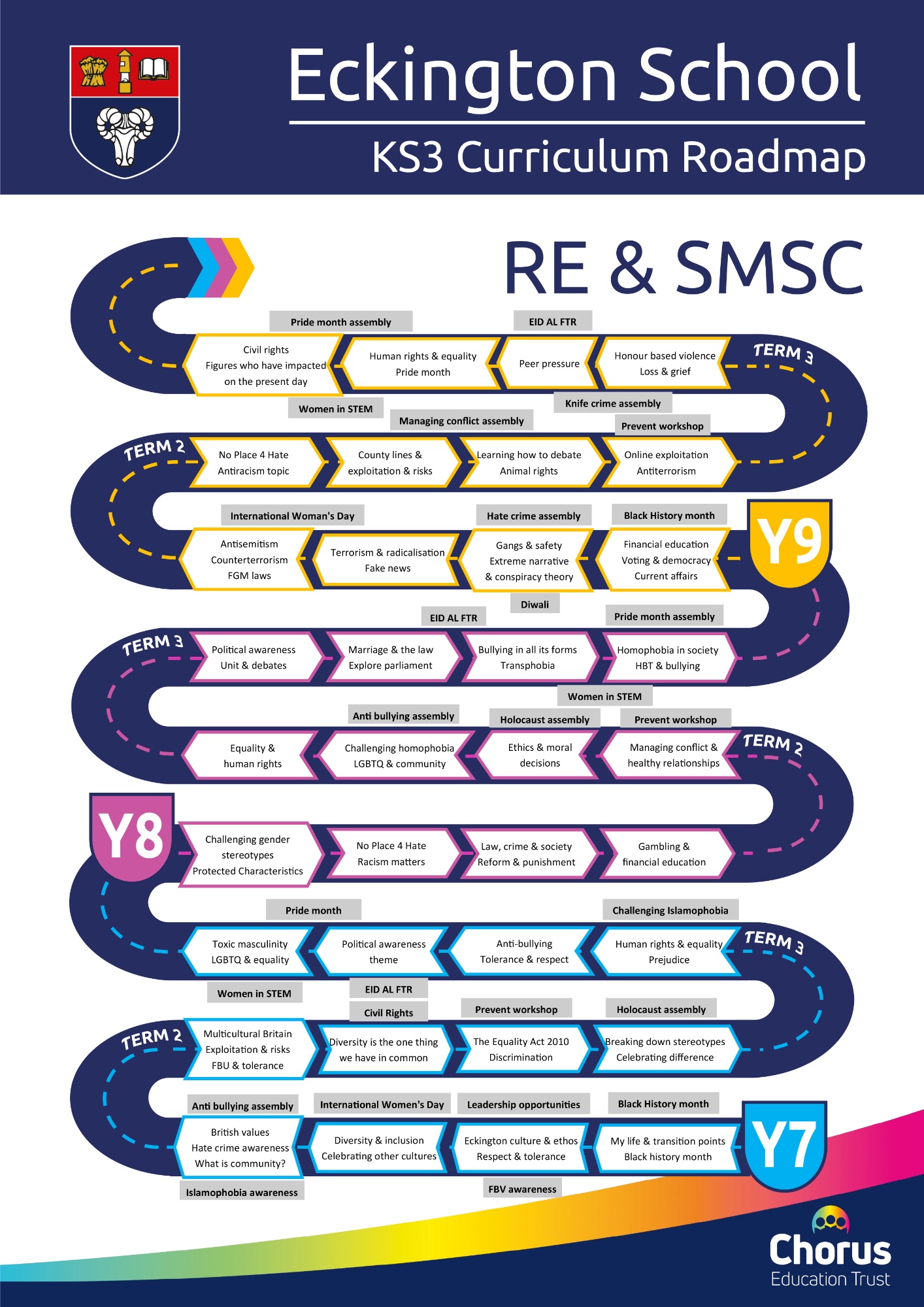Courses
We offer a broad and balanced curriculum, for:
Click the appropriate button below to find the details for each subject offered in each key stage.
Further details of our curriculum are available on the curriculum page.

Overview
Introduction
At Eckington School, we recognise the pivotal role that holistic education plays in shaping well-rounded individuals, preparing them for the challenges and opportunities that lie ahead.
Our life curriculum is delivered in registration time by our dedicated form tutors and, together with character lessons (timetabled on a weekly basis throughout Years 7 to 11), is designed to empower students with essential life skills, fostering their personal development, promoting positive mental health, and nurturing strong social and emotional intelligence. Through engaging and interactive lessons, we aim to create a supportive environment where students can explore and understand critical aspects of their well-being, relationships, and responsibilities, enabling them to make informed decisions throughout their lives.
Course leader
Mrs L Moor
Assessment
Students are assessed using a range of methods including observations, role-playing and simulations, peer and self-assessment, guest speaker sessions and assemblies (where students are assessed on engagement, questioning and insights gained), and feedback and surveys.
Curriculum
Curriculum roadmap: life
Curriculum roadmap: RE and spiritual, moral, social and cultural elements of life education
Topics
Life lessons include a range of topics designed to encourage students on a journey of self-discovery, personal growth, and career exploration, empowering our students to become confident, responsible citizens, and fulfilled individuals.
Topic areas include careers education and information, encompassing a range of special event and visiting speakers. All of our students take part in work shadowing opportunities in key stage 3, and a full week of work experience in key stage 4. These opportunities offer valuable insights and skills that contribute to our students' personal and academic development. Our experienced and passionate form tutors are dedicated to inspiring and guiding students on their ‘personal development’ trajectories.
Note: in secondary schools, parents have the right to withdraw their children from the non-statutory/non-science components of sex education within relationships and sex education (RSE) up to and until 3 terms before the child turns 16. Further information and a copy of the form to complete in order to request withdrawal is available in the Chorus Trust Relationships & Sex Education Policy (www.chorustrust.org/policies).
Note: parents have the right to withdraw their children from religious education and/or collective worship. Further information and a copy of the form to complete in order to request withdrawal is available in the RE withdrawal application form (www.chorustrust.org/policies).
Skills and requirements
Skills learned
- Emotional intelligence: understanding and managing emotions; developing empathy and compassion.
- Resilience: building the ability to cope with challenges and setbacks; developing strategies for maintaining mental well-being.
- Communication skills: effective verbal and non-verbal communication; active listening and expressing thoughts and feelings.
- Relationship skills: building and maintaining healthy relationships; understanding consent and boundaries.
- Decision-making: critical thinking and problem-solving; making informed and responsible decisions.
- Self-awareness: recognising personal strengths and areas for growth; setting and working towards personal goals.
- Health education: promoting physical well-being and a healthy lifestyle; understanding the impact of substance abuse and making healthy choices.
RSE (relationship and sex education)
- Understanding relationships: appreciating diverse family structures; recognising healthy and unhealthy relationships.
- Respect and consent: understanding the concept of consent in relationships; promoting respect for oneself and others.
- Puberty and reproductive health: comprehensive knowledge about puberty and sexual health; understanding reproductive systems and contraception.
- Online safety: navigating and using technology responsibly; understanding the risks and benefits of online communication
Careers education
- Career exploration: researching and exploring various career options; understanding the skills and qualifications required for different professions.
- Goal setting: setting short-term and long-term career goals; developing strategies to achieve career aspirations.
- Employability skills: building skills such as communication, teamwork, and problem-solving; understanding workplace etiquette and professionalism.
- Financial literacy: budgeting and financial planning; understanding economic concepts and the world of work.
Citizenship education
- Social responsibility: understanding civic duties and responsibilities; promoting active citizenship and community involvement.
- Ethical decision-making: discussing ethical issues and dilemmas; encouraging responsible and ethical behaviour.
- Political literacy: understanding the political system and democratic processes; developing awareness of social and global issues.
- Critical thinking: analysing and evaluating information from various sources; developing a questioning and informed approach to societal issues.
Beyond the classroom
Future pathways
By taking part in life lessons, we aim to instil in our students the confidence, resilience, and adaptability needed to thrive in an ever-changing world.





